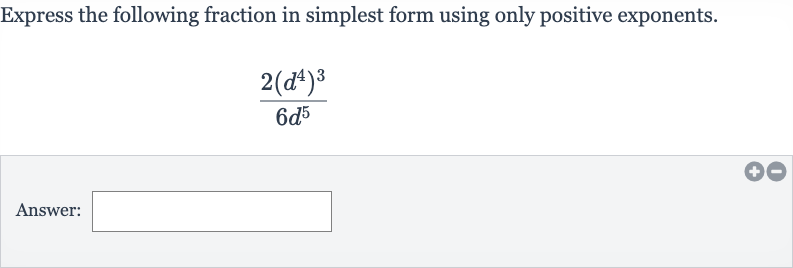AI tutor
Welcome to Bytelearn!
Let’s check out your problem:

Express the following fraction in simplest form using only positive exponents.Answer:
Full solution
Q. Express the following fraction in simplest form using only positive exponents.Answer:
- Simplify numerator: Simplify the numerator.The numerator is . According to the power of a power rule, , we multiply the exponents.=
- Simplify denominator: Simplify the denominator.The denominator is . There is nothing to simplify here, so we keep it as is.
- Divide numerator by denominator: Divide the numerator by the denominator.Now we divide the terms in the numerator by the corresponding terms in the denominator.We can divide the coefficients and subtract the exponents of since the bases are the same.=
- Check for further simplification: Check for any further simplification.The fraction is already in its simplest form with positive exponents. There are no common factors to cancel out, and the exponent is already positive.
More problems from Multiplication with rational exponents
QuestionGet tutor help
QuestionGet tutor help
QuestionGet tutor help
QuestionGet tutor help
QuestionGet tutor help


